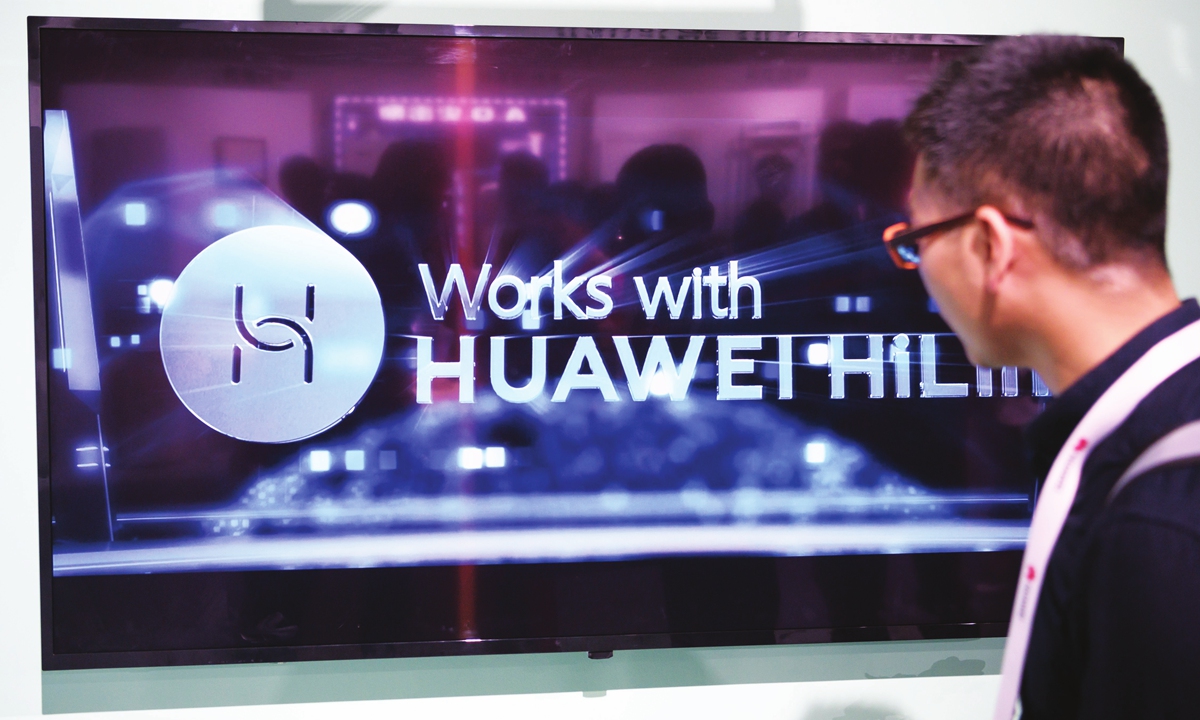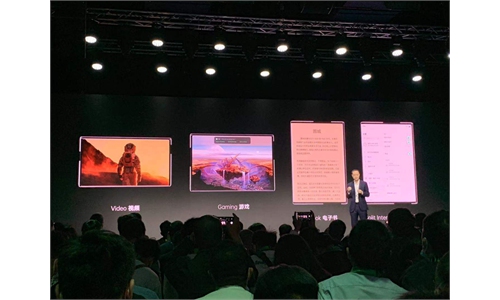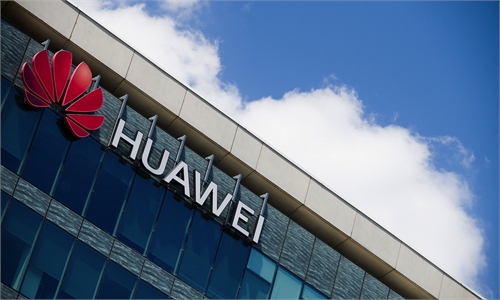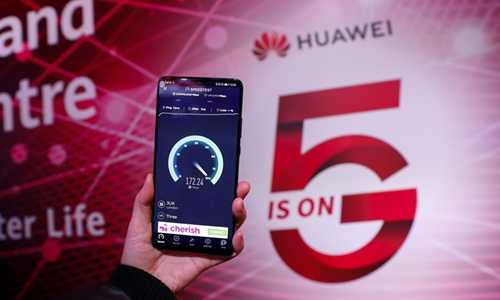Washington to 'safeguard’ US from Huawei
Chinese tech firms must be prepared for pressure from new administration: analysts

A visitor checks out a Huawei device at the Huawei Campus in Dongguan, Guangdong Province on August 10, 2019. Photo: VCG
The administration of US President Joe Biden said on Wednesday that it will safeguard US telecoms networks from "untrusted vendors" like Huawei and work with allies to ensure telecoms safety, raising doubts on whether the new administration will continue to toughen the line against the technology company.
Chinese analysts said that the remarks, though they may not directly point to an official policy, mean that Huawei and other Chinese technology companies may still have to live under intense rules laid down by Biden's predecessor for a certain period.
The White House press secretary on Wednesday said the US will work to safeguard American telecoms networks from untrusted vendors like Huawei that threaten national security, according to a Reuters report.
"We'll ensure that the American telecommunications network ... does not use equipment from untrusted vendors, and we'll work with allies to secure their telecommunications networks and make investments to expand production of telecommunications equipment by trusted US and allied companies," White House press secretary Jen Psaki told reporters in a daily briefing, Reuters reported.
"It's within expectations," Xiang Ligang, director-general of the Beijing-based Information Consumption Alliance, also a close follower of Huawei, said in commenting on the White House statement.
The possibility of the US returning to the use of Huawei's equipment is quite low, and it's also unlikely for the US to remove Huawei from the blacklist, at least in the first three months as its China policy remains unclear, Xiang told the Global Times on Thursday.
Jiang Junmu, chief writer at Chinese telecom industry news website c114.com.cn, also took a cautious approach when asked whether US rules on Huawei can be lifted.
"The overall attitude of the new administration may still be confrontational," Jiang told the Global Times.
Observers said that Huawei should still prepare for the worst-case scenario.
Reuters reported that Huawei is in early-stage talks to sell its premium smartphone brands P and Mate, citing two people with direct knowledge of the matter, describing the plan as "a move that could see the company eventually exit from the high-end smartphone-making business."
Huawei later denied the reports, but some analysts said that a sell-off is still possible, which could be a major way of keeping Huawei alive amid tight chip supplies.
On Tuesday, Biden's pick for commerce secretary pledged a tough line against Chinese trade and technology threats, while declining to promise to maintain the Commerce Department's blacklisting of Huawei, pending a review, according to a Wall Street Journal report.
That prompted many to speculate that Huawei may be moved off the blacklist, which has cut it off from key chip supplies and strangled its smartphone businesses.
So far, US voices on Huawei have been relatively tough, but the new administration's general policy is still ambiguous and we don't have to take all these remarks seriously at this point, Gao Lingyun, an expert at the Chinese Academy of Social Sciences in Beijing who closely follows China-US relations, told the Global Times on Thursday.
"We expect that overall, the US will cooperate with China in some ways such as the medical sector, while it may take an even tougher stance against China in some sectors in the meantime," Gao said.
It's the same for Huawei, Gao said, explaining that in some sectors, the US may relax its ban, while in the core sector that may threaten Washington's dominance in next-generation technology, bans and pressure will in no way be removed.



